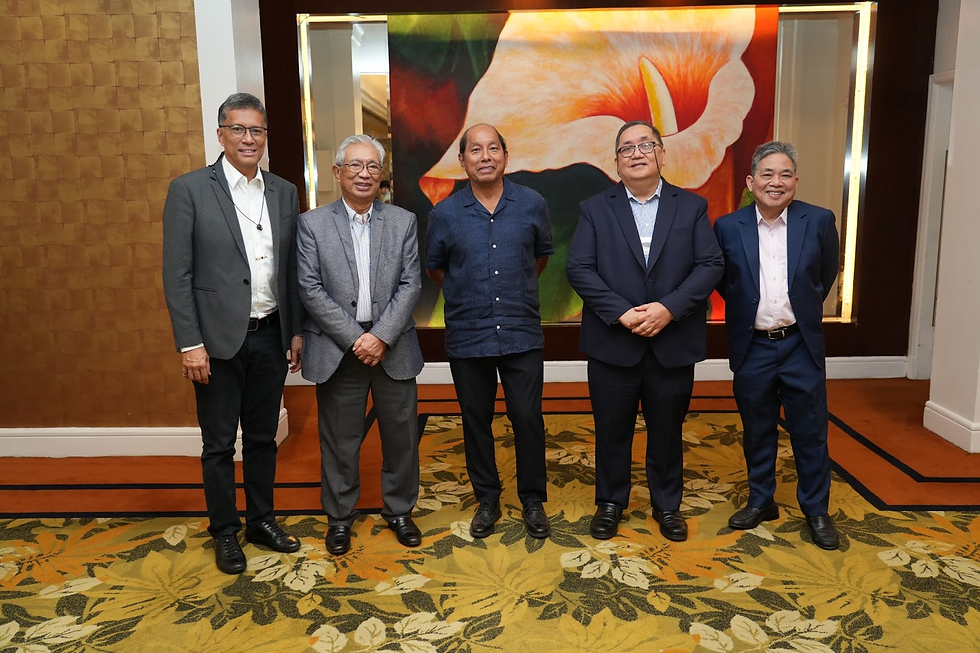ITIC-OE STUDY ON PH ILLICIT CIGARETTE TRADE, UNRELIABLE – AER
- Action for Economic Reforms
- Jul 30, 2014
- 2 min read
Press Release – 29 July 2014
Action for Economic Reforms (AER) refutes the claim of the International Tax and Investment Center (ITIC) and Oxford Economics (OE) that nearly P16 billion was lost in illicit cigarette trade in the Philippines, mainly causing the drop in legal domestic sales of cigarettes in 2013.
The said ITIC-OE study entitled “Asia-11 Illicit Tobacco Indicator 2013 Update for the Philippines” estimated that illicit consumption of cigarettes in the country increased from 5.9% of total consumption in 2012 to 18.1% in 2013. Moreover, it claims that the total consumption of smokers was only down by 3% after a year of implementing the Sin Tax Reform Act of 2012.
Yet AER argues that the study is a case of conflict of interest. ITIC is a research firm that claims to be independent even while Philip Morris International’s Vice President for Fiscal Affairs and International Trade (Mr. Huub Savelkouls) actually sits in the Board of Directors, along with other global tobacco industry representatives.
AER recalls that at the height of the sin tax debate in Congress in October 2012, ITIC organized the Ninth Asia-Pacific Tax Forum in Manila and used the occasion to criticize the government’s proposed reforms, including the cigarette tax increase. In the experiences of other countries such as Australia and the UK, using alleged threat of smuggling has been among the strategies of tobacco companies to oppose tobacco tax reforms.
Significantly, said AER Coordinator Filomeno Sta. Ana, the ITIC-OE study suffers from serious methodological problems starting from its data gathering process to analysis.
It employed “empty pack surveys” which, by its very nature, may suffer from selection bias of sources of litters or incorrect deciphering between counterfeits and legal non-domestic products.
Secondly, the study used a formula which assumed values of too many important variables such as other cigarette companies’ declared and actual volume in the market, which, because of BIR’s disclosure information
Although the artificially depressed prices of some cigarette brands are worrisome, AER asserts that they are not sufficient to automatically conclude that the manufacturers of such brands are already engaged in illicit trade.
“Not only Mighty but also PMFTC’s Jackpot as well as other variants have more or less the same artificially low prices,” said Sta. Ana. At present, PMFTC’s low-end brands sell at around P1.25/stick when Mighty cigarettes typically sells at P1.50/stick. AER sees this price war as an unsustainable strategy to gain market share especially with the application of a unitary tax scheme by 2017.
Lastly, AER also emphasizes that aside from doubling excise tax collections, the Sin Tax Law greatly reduced cigarette consumption. Far from the 3-percent estimate of ITIC, smokers from Angono, Rizal and Cotabato City reduced smoking by 14.3% and 22.9%, respectively, according to AER-DOH surveys in 2013.
More recently, the 2014 Social Weather Stations survey on cigarette consumption revealed a drop in smoking prevalence, particularly among the young and the poor.
Despite the questionable nature of the Asia-11 report, AER supports the Bureau of Internal Revenue (BIR)’s effort to pursue an investigation on illicit trade. AER also lauds the latest measure of having stamps on cigarette packs to distinguish the paid packs from the illicit ones.
Action for Economic Reforms (AER) is an independent policy think-tank and a core member of the civil society coalition that pushed for the passage of the Sin Tax Law in 2012.



